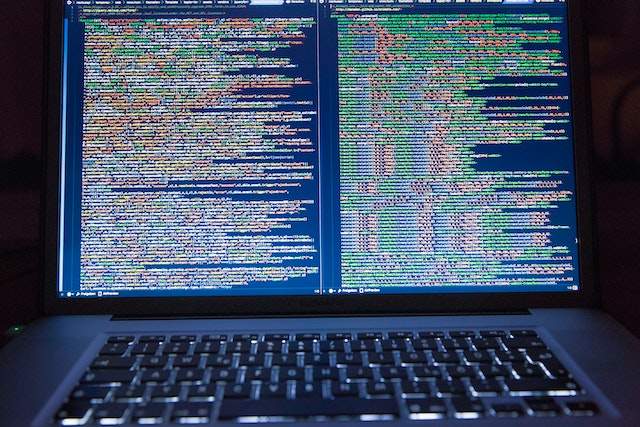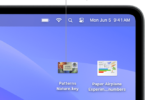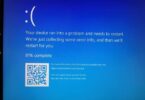In 2023, for extracting data from any website, web scraping is a very useful way. A few websites contain a huge amount of invaluable data, such as product details, stock prices, sports stats, etc. In order to access the information, you should use whatever format the website uses. Otherwise, you need to manually copy & paste the information into a new document. Let’s have a look at this article to learn about web scraping in-depth.
What is Web Scraping?
Web scraping is a method through which bots are used to extract data & content from a website. It is not like screen scraping that copies only the pixels that are displayed on the screen. Instead, it extracts HTML code and data, which are stored in a database. The scraper is capable of replicating the whole website content.
What is Web Scraping?
This is an automatic process, which can obtain a large amount of data from websites. In most cases, this data is unstructured in an HTML format. After that, it will be converted into structured data in a spreadsheet or a database to be used in different applications. You can perform web scraping in several ways to obtain data from websites. For example, you can use online services like APIs or try to generate your code from scratch for this procedure.
APIs that are available on multiple big websites, like Google, Twitter, Facebook, StackOverflow, and so on, let you access their data in a structured format. Although it is the most effective option, many sites do not let you access large amounts of data in a structured form, and these are not advanced technologically. So, in this case, you should use web scraping in order to scrape the site for data.
You can use web scraping for illegal purposes, like the theft of copyrighted content or the undercutting of prices. A scraper usually targets an online entity that suffers severe financial losses, mainly if this one is a business depending on competitive pricing models.
Web scraping requires two parts, including the scraper & the crawler. The crawler refers to an artificial intelligence algorithm browsing the web to find specific data required by links across the web. On the flip side, the scraper is actually a tool that is created to extract data from the site. The scraper’s design varies based on the project’s complexity and scope to extract data quickly.
Scraper Tools and Bots:
These tools are software programmed for sifting through databases,and extracting information. Different bot types are used, among which many are fully customizable to:
- Extract and transform content
- Recognize exceptional HTML site structures
- Store scraped data
- Extract data from APIs
As every scraping bot has the same purpose — it will be difficult to distinguish between legitimate bots and malicious bots. Some important differences will assist you in distinguishing between the two.
Legitimate bots can be detected with the organization for which these scrape. For instance, Googlebot can identify itself in its HTTP header as belonging to Google. Malicious bots create a false HTTP user agent to impersonate legitimate traffic. The robot.txt file of a site is abided by legitimate bots. This file lists pages that are allowed to be accessed by a bot and those it will not be able to. On the flip side, Malicious scrapers crawl the website regardless of what is allowed by the site operator.
How Do Web Scrapers Work?
The procedure of working web scrapers is as follows:
- First, the web scraper gets one URL or more than that to load before scraping. After that, the scraper loads the whole HTML code for the page in question. The whole website, including JavaScript & CSS elements will be rendered by more advanced scrapers.
- Next, the scraper extracts all data on the page or particular data that the user has chosen before the project runs.
- The user will go through the method of choosing the specific data they want from the page. For instance, you might be required to scrape an Amazon product page for models & costs. But you are not that much interested in product reviews.
- At last, the web scraper can output all data that has been collected into a format that is more useful to the user.
Web scrapers in most cases output data to a CSV or Excel spreadsheet. Whereas, the more advanced scrapers are able to support formats like JSON. This type of format can be used for an API.
How Does Manual Web Scraping Work?
You need to use developer tools of a web browser in manual web scraping to view & extract a web page’s source code. The steps you need to follow in this case are:
- Your first job is to open the targeted webpage in a browser.
- After that, you have to open the developer tools of the browser by right-clicking on the page.
- Then, you need to view the source code of the page.
- In order to see the elements corresponding to the preferred data on the web page, you have to use the browser’s inspector.
- Then, you should copy the data you have preferred.
- Finally, your job is to paste data into a text file. You need to save this for later use.
How Does Automated Web Scraping Work?
If you want to perform automated web scraping, you should use scraping tools. For instance, Scrapy libraries or Python scripts can be used to extract content from many web pages.
The fundamental steps you are required to follow are:
- HTTP requests are usually sent programmatically by the scraping tool to the servers that host the targeted web pages.
- After that, servers return the source code of HTML for the targeted pages.
- Next, HTML is parsed by the scraping tool, and then it will extract the desired data.
- You can find the data for processing or further analysis.
- There are a few automated web scraping tools that are capable of offering advanced features. These tools have the capabilities of handling cookies or getting around a site’s Terms of Use that can limit content scraping.
Different Types Of Web Scrapers:
It can be categorized based on multiple criteria, which are as follows: Self-built or Pre-built Web Scrapers, Browser extension or Software Web Scrapers, and Cloud or Local Web Scrapers.
Self-built Or Pre-built:
Just like you are able to create a website, you can also build your own web scraper. But in order to create a web scraper, tools that are available need a little advanced programming knowledge. This scope of knowledge can be increased with the count of features you want your scraper to include.
On the flip side, several pre-built web scrapers can be downloaded and run immediately. A few of them come with advanced options like scrape scheduling, JSON & Google Sheets exports.
Browser Extension Vs Software:
Usually, web scrapers are available in two forms, including browser extensions or computer software.
Browser extensions refer to the app-like programs you can add to the browsers like Firefox or Google Chrome. Ad blockers, themes, messaging extensions, etc are a few reputed browsing extensions.
The unique thing about web scraping extensions is that it is simple to run and can be integrated into your browser. But the extensions are limited. Therefore, other advanced features outside of your browser can not be implemented. For instance, IP Rotations won’t be possible in this type of extension.
On the flip side, you can download and install actual web scraping software on the PC. Although compared to browser extensions, these are a bit less convenient, these come with advanced features that are not limited by what the browser you are using is able to do or unable to do.
User Interface:
It varies in every web scraper. For instance, a few web scraping tools run with a command line and a minimal UI. Whereas for a few users, it can be unintuitive or confusing.
On the flip side, a few web scrapers will come with a full-fledged UI where the site is completely rendered for you to just tap on the data you are willing to scrape. If your technical knowledge is limited, these web scrapers will be easier to work with. A few scrapers also integrate the help tips & suggestions via their user interface to ensure that you understand every feature that the software offers.
Cloud Vs Local:
Local web scrapers use an internet connection and its resources to run on the computer. It indicates when your web scraper includes a high usage of CPU or RAM, your PC might work slowly when the scrap will run. Long scraping tasks might put your PC out of commission for hours. When your scraper is ready to run on several URLs like product pages, it could have an impact on the data caps of the ISP.
Cloud-based web scrapers run on an off-site server. When your scraper runs & gathers data, the resources of the PC are freed up. After that, you are able to work on other tasks. You can get notifications later after the scrape can be exported. It lets you integrate advanced features like IP rotation, used to prevent the scraper from getting blocked from big websites because of the scraping activity.
What is Web Scraping Used For?
It has many applications across different industries. Let’s see a few of these.
Price Monitoring:
Companies use this process to scrap the product data for their items and compete with products in order to view the way it impacts their pricing strategies. This data is used to resolve the issue related to optimal pricing for their products to obtain maximum revenue.
Market Research:
Companies even use web scraping for market research. Top-quality web-scraped data are obtained in huge volumes to analyze consumer trends. These let companies understand in which direction they should go in the future.
News Monitoring:
A company can get detailed reports from web scraping news sites on the current news. For companies that rely on daily news for regular functioning, it is much more essential. As we all know, News reports are able to create or break a company in a day.
Sentiment Analysis:
This analysis is a must when a company wants to analyse general statements for its products among its consumers. Web scraping is used by companies in order to collect data from social networking sites like Twitter and Facebook. It helps them to create products that people prefer.
Email Marketing:
Companies use web scraping for email marketing. Collecting email IDs from different sites is possible with the help of this process. After that, they send marketing & promotional emails in bulk to people who own such Email IDs.
Real Estate Listing Scraping:
In order to populate the database of available properties for sale or rent, several real estate agents use web scraping. For instance, a real estate agency can create an API by scraping MLS listings. This API is able to populate the information directly onto the website. Thus, if a person finds the listing on the site, they become the agent for the property. In most cases, listings available on a real estate website can be generated automatically by an API.
Industry Statistics And Insights:
Several companies generate huge databases using web scraping. They are also capable of drawing industry-specific insights from these. After that, they allow the insights to access companies in known industries. For instance, a lot of data related to exports, oil rates, imports, etc can be scraped and analyzed by a company to sell insights to oil companies throughout the globe.
Comparison Shopping Sites:
A few applications and websites let you compare pricing between different retailers for the same product. These websites use web scrapers to scrape pricing as well as product data from every retailer regularly. Thus, they are able to give the required comparison data.
Lead Generation:
Lead generation is a popular use of web scraping. Several companies use web scraping to collect contact information about potential clients or customers. It is very common in the business-to-business space, where potential customers post business information publicly online.
Malicious Web Scraping Examples:
Web scraping can be malicious when data is extracted without the website owner’s permission. Price scraping and content theft are the two common use cases.
Price Scraping:
In this case, a perpetrator uses a botnet to launch the scraper bots. It also aims to inspect competing business databases. Its goal is to access undercut rivals, pricing information, etc.
Attacks occur in industries where the products are comparable, and the cost plays an important role in buying decisions. Travel agencies, ticket sellers, and online electronics vendors are the victims of price scraping.
For instance, smartphone e-traders sell similar products for relatively consistent prices. And they are usually the frequent targets. They are motivated by providing the best prices to remain competitive, as the customers will go for the lowest cost offerings. In order to gain an edge, the vendor may use a bot for scraping the competitors’ websites continuously and then update his own prices instantly according to the competitors’ prices.
Content Scraping:
It comprises huge-scale content theft from a given site. These kinds of targets include online product catalogs & websites that depend on digital content to drive business. This type of attack is devastating for the enterprises. Online local business directories usually invest a lot of money, time, and energy to establish their database content. These events can impact the bottom line of a business & its daily operations.
Web Scraping Protection:
Due to the increased sophistication of malicious scraper bots, a few common security measures become ineffective. For instance, the headless browser bots masquerade as humans, because they fly under the radar of mitigation solutions. In order to counter advances that are made by malicious bot operators, Imperva takes help of granular traffic analysis and confirms that all traffic coming to your site, human & bot alike, is totally legitimate. This procedure includes cross-verification of a few factors, including:
HTML Fingerprint:
A granular inspection of HTML headers is seen at the start of the filtering process. These give clues to identify the visitor, if it is a bot or a human, and malicious or safe.
IP Reputation:
People usually collect IP data from attacks against clients. If someone with a specific IP address visits and these addresses are used previously in assaults, those sites will be treated with suspicion. As a result, these could be scrutinized further.
Behavior Analysis:
Visitors can interact in different ways with a website. So, tracking the ways visitors interact will reveal abnormal behavioral patterns like illogical browsing patterns, aggressive request rates, etc. In this way, bots posing as human visitors can be identified.
Progressive Challenges:
In order to reduce false positives and filter out bots, JavaScript execution and cookie support are used. Remember that a CAPTCHA challenge is capable of weeding out bots that try to pass off themselves as humans.
Is Web Scraping Legal?
Its action is not illegal. But a few rules have to be followed. It becomes illegal when data (available non-publicly) is extracted.
The Bottom Line:
Web scraping is one of the effective ways to retrieve information posted on websites. It can be executed manually or programmatically. While you can try manual scraping to perform easy data extraction tasks, automated web scraping is suitable for big extraction tasks. However, it may put too much load on website servers. As a result, a few sites block or limit the rate at which the automated scraping tools send requests.
Frequently Asked Questions
Can you get banned for web scraping?
Yes, it can happen when a website detects that your tools are breaching the rules outlined in the robots.txt file or triggers an anti-bot measure. Once it detects, it will block your scraper. A few fundamental precautions can be taken to avoid bans. These precautions allow you to use proxies with rotating IPs and to make sure that the request headers appear real.
Do hackers use web scraping?
Content scraping called “screen scraping” or “scraping” is beneficial in collecting information from the web. In recent years, the technique has become a preferable tool for hackers.
Does web scraping need coding?
Self-built Web Scrapers can be used, but it needs advanced knowledge of programming.







